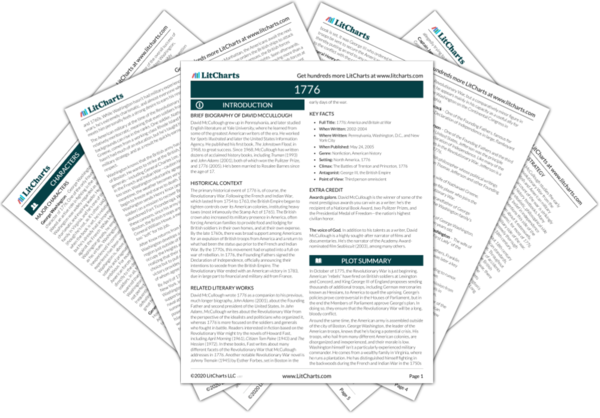Next
Summary
1776 Study Guide |
Next
Summary
|
Welcome to the LitCharts study guide on David McCullough's 1776. Created by the original team behind SparkNotes, LitCharts are the world's best literature guides.

Awards galore. David McCullough is the winner of some of the most prestigious awards you can win as a writer: he’s the recipient of a National Book Award, two Pulitzer Prizes, and the Presidential Medal of Freedom—the nation’s highest civilian honor.
The voice of God. In addition to his talents as a writer, David McCullough is a highly sought-after narrator of films and documentaries. He’s the narrator of the Academy Award-nominated film Seabiscuit (2003), among many others.